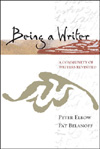Workshop 8 Sometimes it is easier to see the value of reading a poem in parts when we are simultaneously aware of other students’ interpretative processes. For instance, reading others' responses to Auden's poem "Song" may make you realize that you aren't the only person to have very personal associations with part I. This realization, furthermore, might allow you to pursue your own personal interpretation with more confidence. Alternatively, you may be moved by someone else's interpretation; you may want to develop it in a different direction, or begin a discussion with that person about how and why your interpretations differ. To share our interpretations with others, in short, is to expand our awareness of the interpretative possibilities of the poem. Even if we decide, after reading everyone else's interpretations, that we still like our own the best, we can't help but see the poem differently. Those other readings stay with us, informing our subsequent readings of the poem and provoking us to think about the poem from different perspectives. In this exercise, therefore, we'd like to take advantage of the web's discussion-capabilities, in order to increase your access to different interpretations of the poem. You will be reading W. H. Auden's "Song" (located in workshop 8 of your textbook) and responding after you have read each section. We will then ask you to paste your responses into a discussion area, where you can read how others have interpreted each part. Before you begin, you should read "Capturing Reactions on the Fly" so that you know what kind of response to produce. Once you have completed "Capturing Reactions on the Fly," you can follow the steps listed below. - Begin by reading Part I of the poem. Open up a word processing window and respond to these first five stanzas.
- When you have finished your response, according to the instructions in "Capturing Reactions on the Fly," insert a few carriage returns, type "Part II" and begin reading Part II.
- When you have finished your response to Part II, follow the same steps for Part III. At the conclusion of these steps you should have three blocks of text in your word processing window.
- In a browsing window open up the discussion for this workshop. You should see a discussion thread for each part of Auden's poem "Song" (i.e., "Song part I," "Song part II" and "Song part III").
- Copy each of your own responses and paste them into the appropriate discussion thread. You'll have to do this one at a time. If you're not sure whether you are pasting your response to the right thread, ask your teacher for assistance.
Now read through the responses that everyone else has posted. Which ones stand out to you as being very different from your own? Why do you think this reader, or these readers, have come up with such different readings? - In your word processing window, begin a new section below part III called "other readers" and attempt to answer the questions above. Don't worry about how wrong your answer might be--no one is going to see this writing, unless you want them to see it.
- After you have written some thoughts about other students' interpretations, try to analyze your own habits as a reader: what "life-themes" or "life-positions" do you bring to the poem? On the basis of your responses, what kind of reader are you? How do your own attitudes, opinions and previous experiences affect how you read this poem?
- After you have written for 10-15 minutes, copy and paste these thoughts into the discussion thread called "myself as a reader".
- For homework, we'd like you to compose a poem that responds to Auden's "Song".
- Before you come to the next class, paste your poem into the discussion thread entitled "Responding in Kind" and read through the poems that your classmates have posted.
|



 2003 McGraw-Hill Higher Education
2003 McGraw-Hill Higher Education